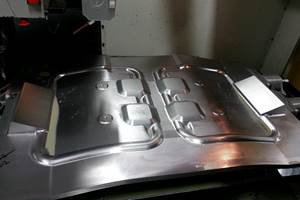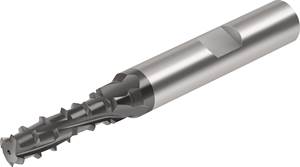Many companies are seeing a slow but steady improvement in their business conditions, prompting some to consider filling positions that have been vacant for a long time. It is certainly a positive sign when a company can add to existing staff and provide some relief to employees who have literally “carried” the company during uncertain times. Some companies have gone such a long time without hiring someone that it’s conceivable they have lost touch with the hiring process.
For those who need a little refresher on the basics of interviewing prospective candidates for a position, keep in mind you need to select someone who is both capable and willing to do the job. Capability is a skill measurement. What a candidate does to develop skills needed for the next job determines his or her capability. Willingness is a measure of what a candidate is likely to do when he or she is hired for the job. Let’s explore each of these two job requirements in detail.
Out of the two job requirements, capability is probably the easiest way to determine if you should hire a given candidate. Discussing someone’s past work experience, with special focus on accomplishments and challenges met, can help you understand a person’s capability. A candidate with prior experience in a position similar to the one in your organization should be better equipped for the position than a candidate who lacks that type of track record.
A good interviewer needs to find out how the candidate handled specific situations in order to uncover the person’s depth of knowledge and experience. Uncovering these details is critical to bolstering an interviewer’s confidence in a candidate’s capability. Skilled interviewers acquire such details by talking less and listening more. Allowing someone enough time to talk about his or herself may be the best way to make a decision about whether a candidate’s capability is sufficient enough to be effective in the position you are trying to fill. Also, if a candidate explains how his or her performance made a prior employer better, you may gain insight into how that capability was put to use.
A candidate’s willingness to do the job is a little harder to ascertain. To truly discover a candidate’s willingness to handle the rigors of a job requires asking some thought-provoking questions, so greater preparation is required. You cannot learn about willingness simply by asking what the candidate did in the past. Instead, the focus shifts to what he or she would do in the future under certain conditions. For example, if the job requires long hours, you need to learn about any outside commitments that might prevent the candidate from staying beyond what is considered normal working hours. Certainly a second job, commitment to other organizations or even family commitments might make it difficult for the candidate to put in the extra time needed—even if the person claims a willingness to do so.
Some jobs are clerical in nature and might include tasks such as producing reports, processing time sheets or generating e-mail correspondence. Although a candidate may say that he or she is willing to do all of these tasks, someone who has always relied on others to do this type of work may not think it is very important and might not give it the attention it needs in your company.
Likewise, a person with limited computer experience, or even poor typing skills, may be ill-equipped to handle some of these clerical tasks. If there is a need to complete these tasks by a certain time each day, asking the candidate what time he or she would begin them is a way to learn how he or she would manage the workload in relation to the other tasks associated with the job. (This indirectly reveals the candidate’s willingness to complete such tasks in a timely manner.) In general, making use of the question, “How would you handle this situation?” is a good way to discover a person’s willingness to address various aspects of just about any job.
Although there is no guarantee you will always hire the right person for the job (as is evidenced by the fact that all of us at some time have hired a “wrong person” for a job), narrowing your interviewing focus to a person’s capability and willingness should increase the odds of hiring someone who will be successful in the next position you need to have filled in your company.





















.jpg;maxWidth=300;quality=90)















